News feed
BME’s international student community welcomes nearly 500 new members
2023. 10. 05.Following the international opening ceremony of the academic year in the auditorium of BME’s Central Building, nearly 500 new foreign students start their studies in one of BME’s English-language programmes.
The ceremonial opening of the academic year for BME’s international students was held on 2 October 2023. This year, a total of 476 new students started their studies at BME.
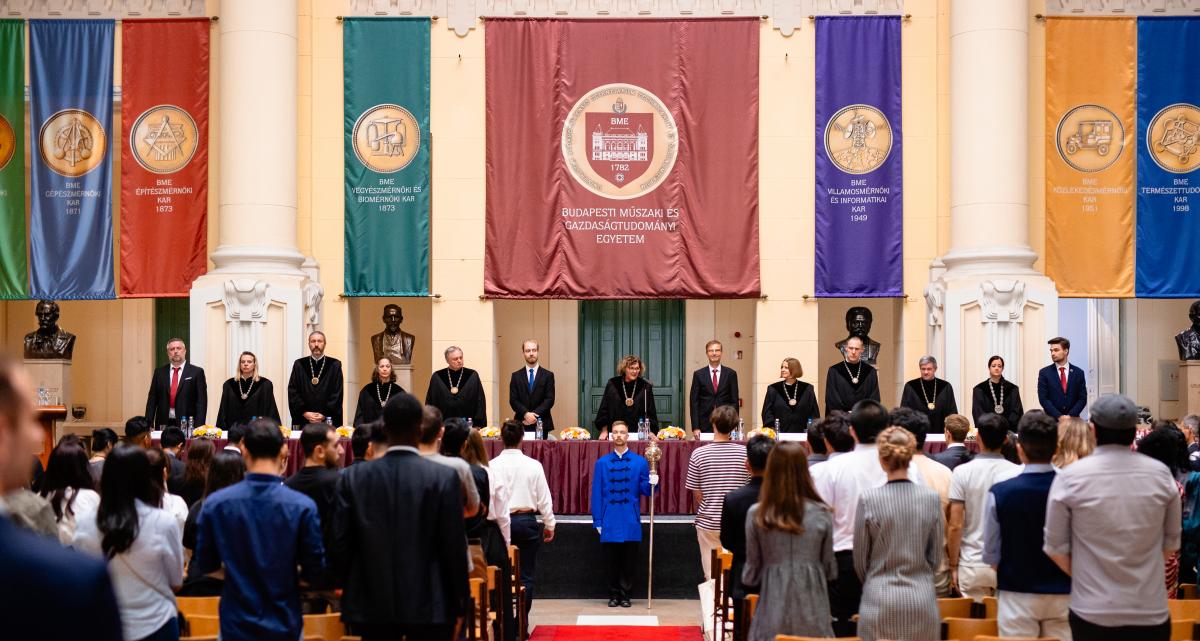
Emília Csiszár, vice-rector for international affairs welcomed first-year students and reminded them that joining BME means joining a large international community because BME is a member of EELISA, a university alliance in Europe, which was established by 10 European universities. ‘EELISA is building the university of the future in engineering science. We always tell our prospective students that if they join BME, they will be the students of 10 European universities. EELISA is your gateway to European education and European degrees,’ said Emília Csiszár who finished her speech by expressing her hope that students will look at Budapest as a home away from home after their graduation from the university.
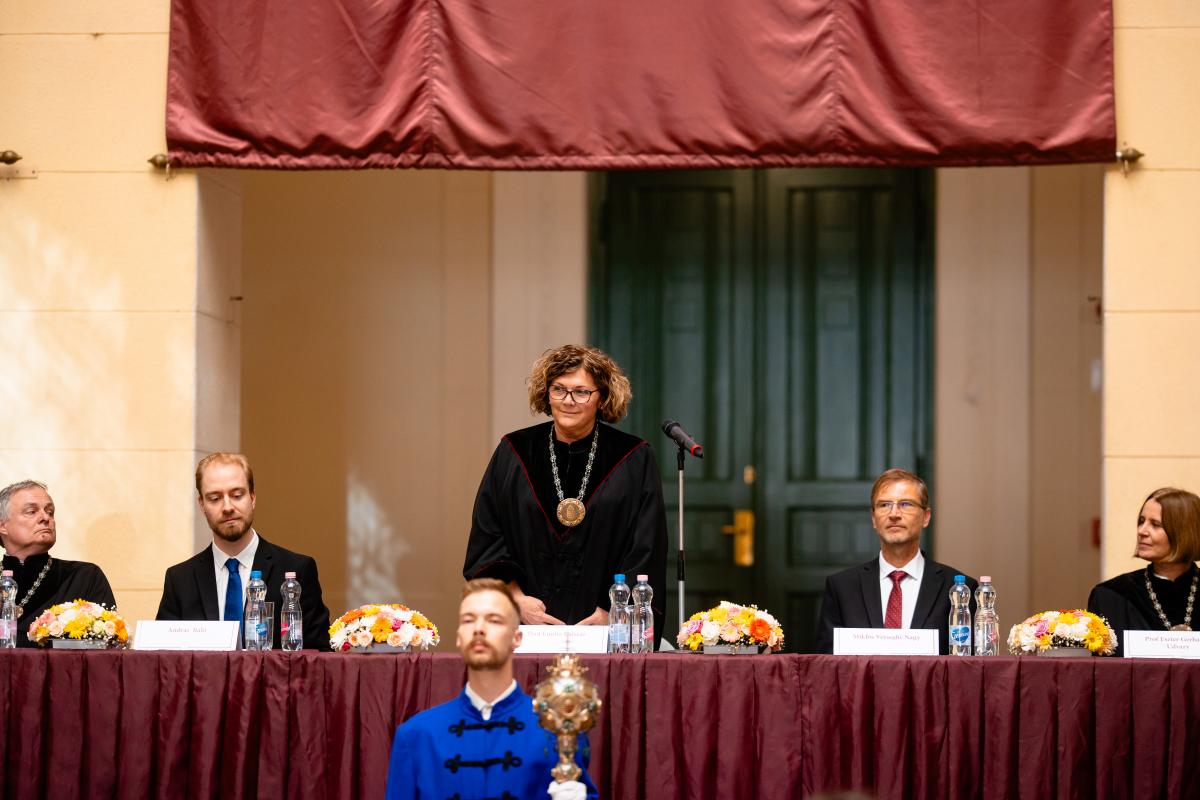
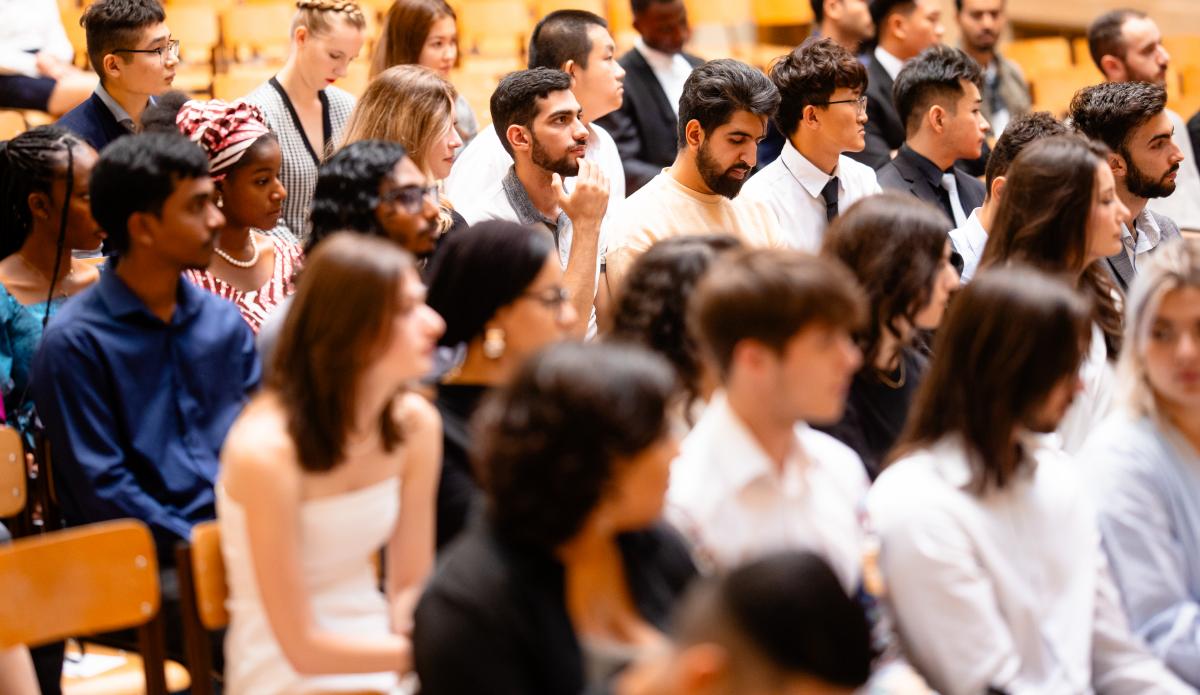
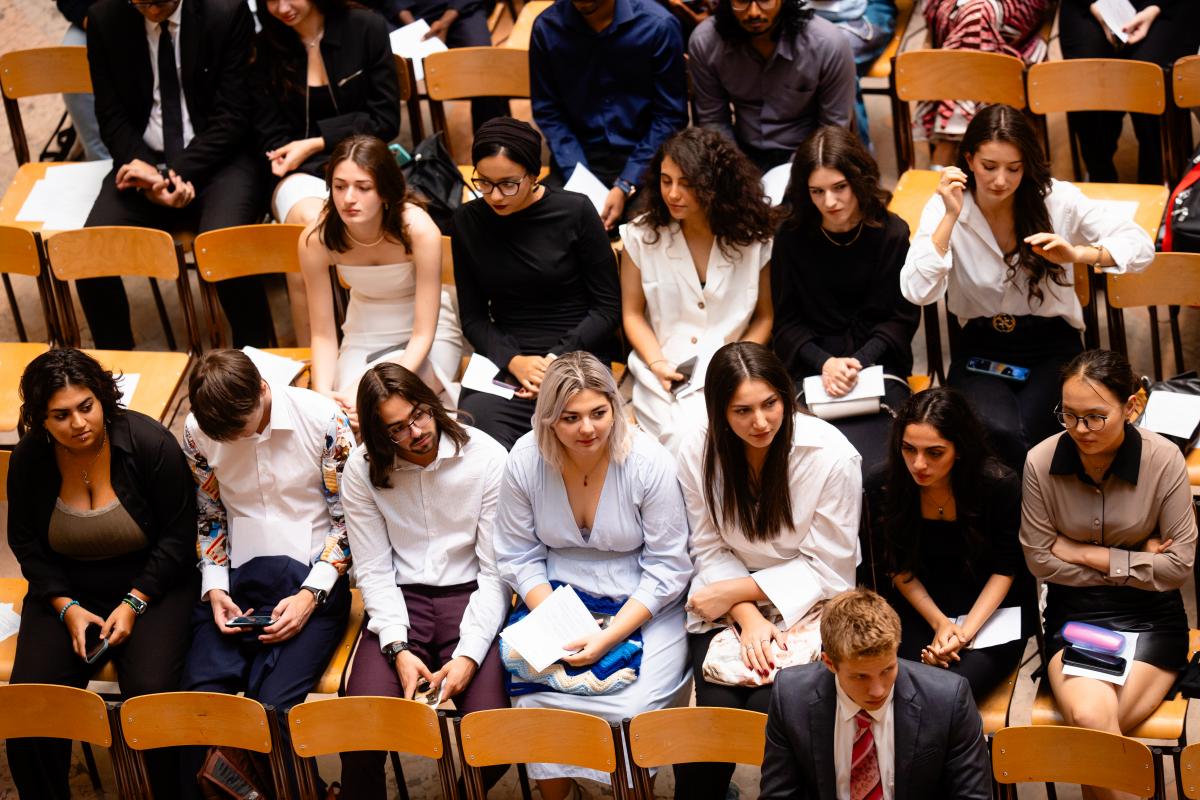
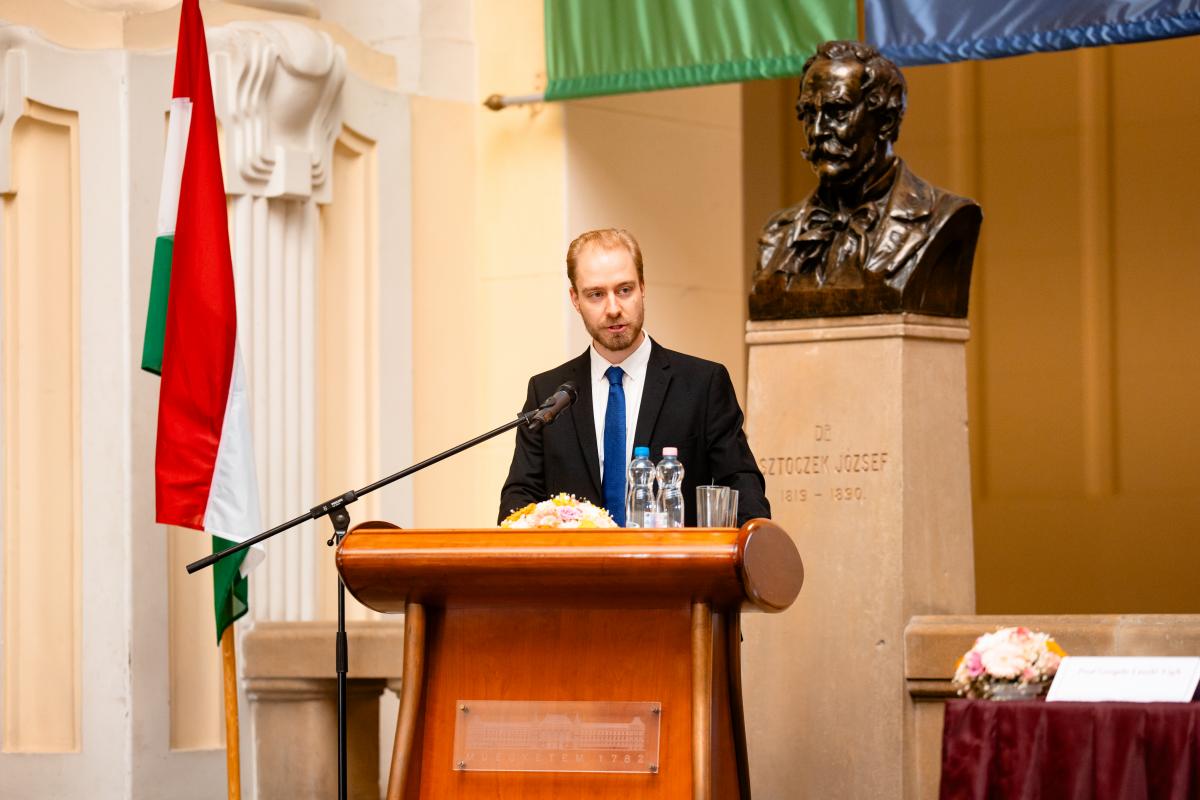
In his speech, András Báló, head of the Department of Higher Education at the Ministry of Culture and Innovation looked back on the nearly thousand-year-old history of higher education in Europe describing how the importance of engineering education grew over time. He emphasized that BME’s predecessor was Europe’s first civil institution of engineering education. Regarding the university’s present state, he said that BME is in the top 5 % of the world’s best universities together with 10 other Hungarian universities. In recent years, the government has made successful efforts to improve the competitiveness of Hungarian universities and will continue to implement these actions in the future as well. One goal is for a Hungarian university to be one of the world’s top 100 universities. András Báló reminded the international students that the value of a degree from BME is not only reflected in international rankings but also by employment prospects as this degree will allow them to find very well-paid jobs almost immediately.
|
Persons present at the international opening ceremony included, as hosts, Emília Csiszár, vice-rector for international affairs, Miklós Verseghi-Nagy, chancellor, as special guest, András Báló, head of the Department of Higher Education at the Ministry of Culture and Innovation. The university and the faculties were represented by Nauzika Kovás, vice-dean of the Faculty of Civil Engineering, Csaba Hős, vice-dean of the Faculty of Mechanical Engineering, Ágnes Balogh Gyetvai, vice-dean of the Faculty of Architecture, Zoltán Hell, professor, Faculty of Chemical Technology and Biotechnology, Eszter Udvary, associate professor, Faculty of Electrical Engineering and Informatics, Ferenc Mészáros, vice-dean of the Faculty of Transportation Engineering and Vehicle Engineering, István Prok, vice-dean of the Faculty of Natural Sciences, Mária Csete Szalma, vice-dean of the Faculty of Economics and Social Sciences and Levente Nagy, member of the Students’ Union. The ceremony was moderated by Eszter Mozsár, administrator expert of the Rector's Cabinet. A live stream of the event was available online. |
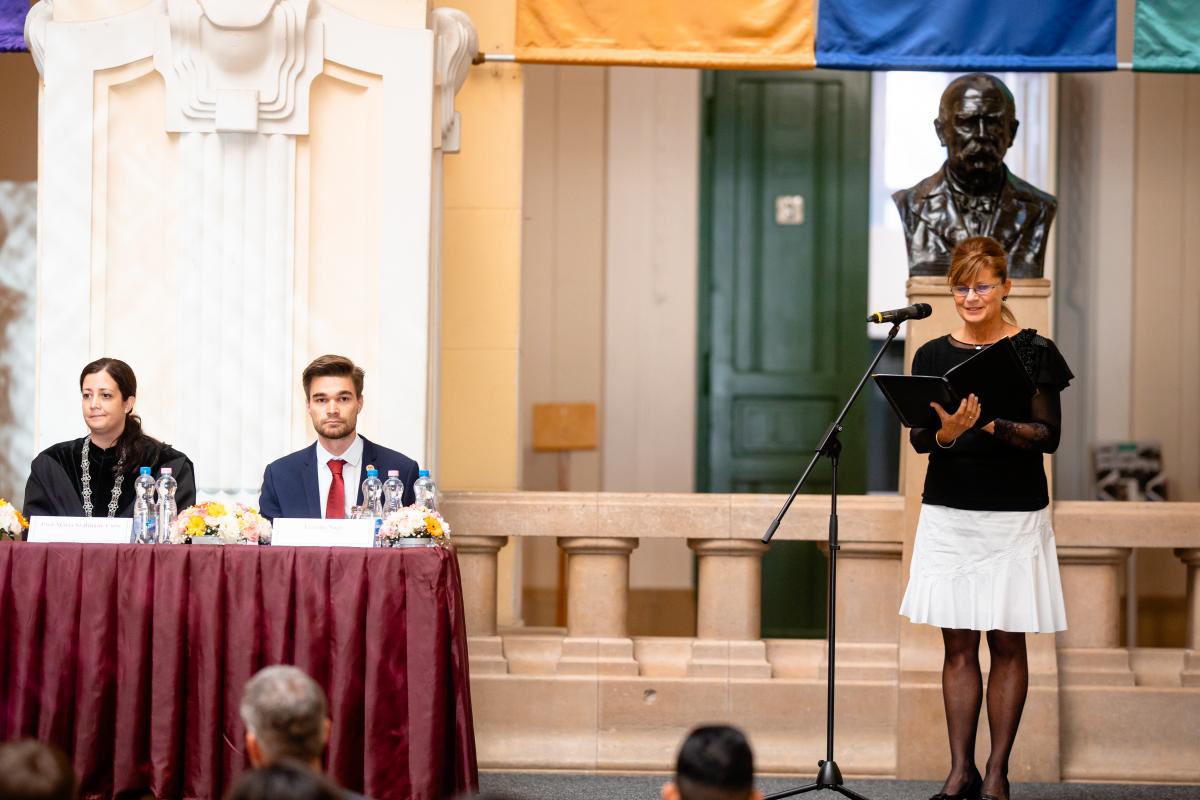
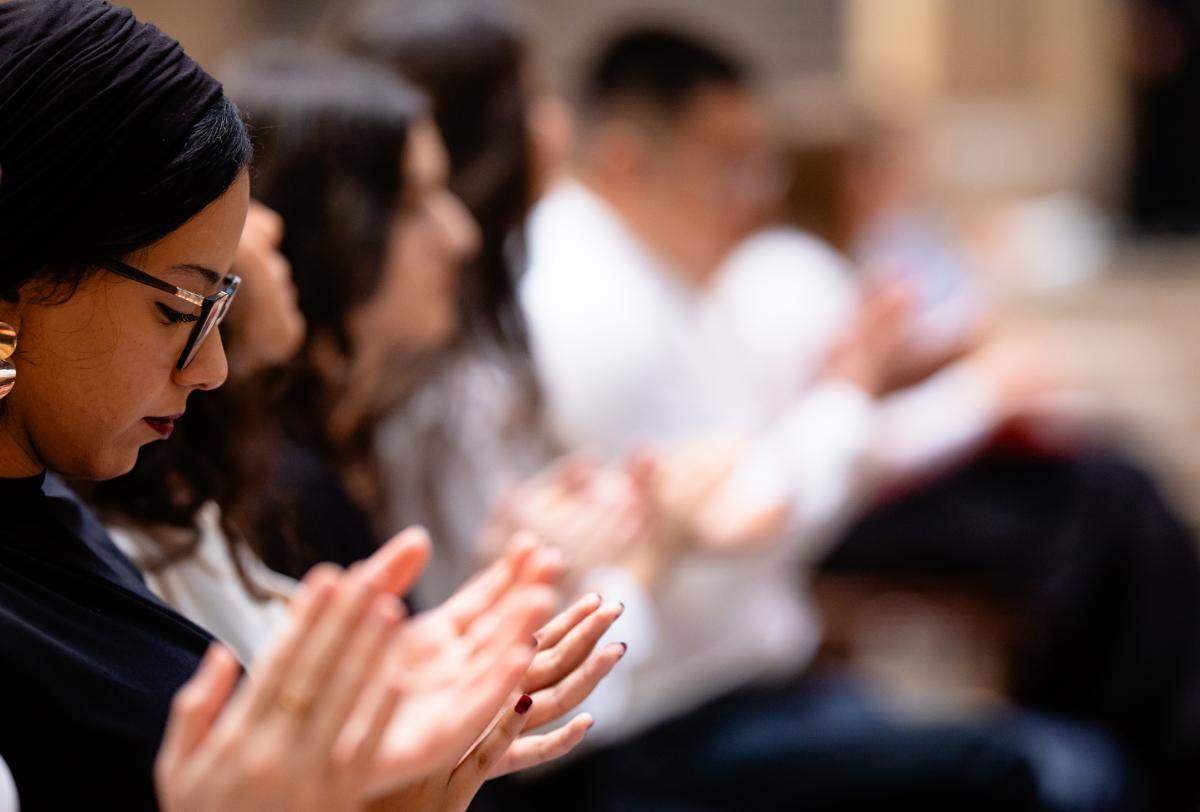
BME’s choir performed King Henry VIII Pastime at the ceremony. Following the performance, Gergely László Vígh, director of the Department of International Academic Affairs at the Rector's Cabinet congratulated first-year students on their successful admission to BME. ‘BME is a prestigious higher education institution ranked in the top 5 % of the world’s best universities. BME has a variety of joint education programmes with over 70 international institutions. These partnerships improve BME’s competitiveness and offer a wide range of possibilities for our students,’ said the director describing BME’s international presence and importance to first-year students.
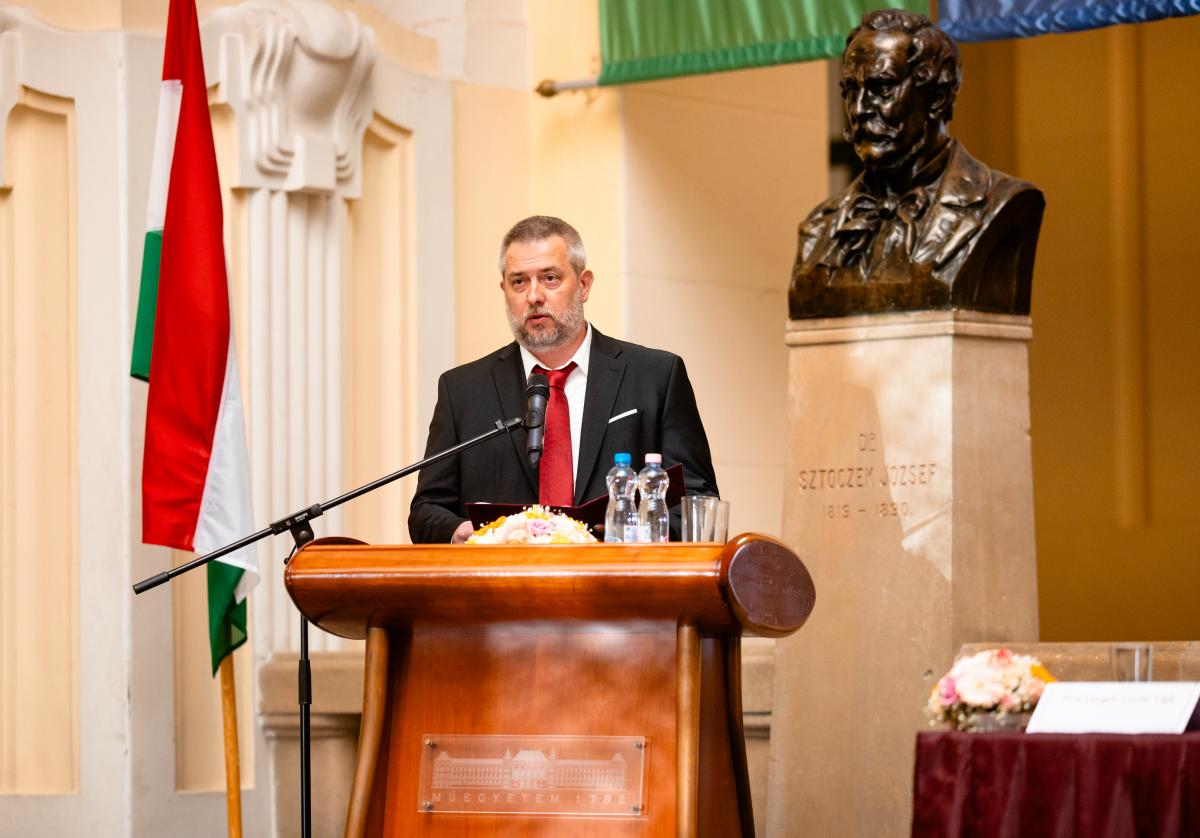
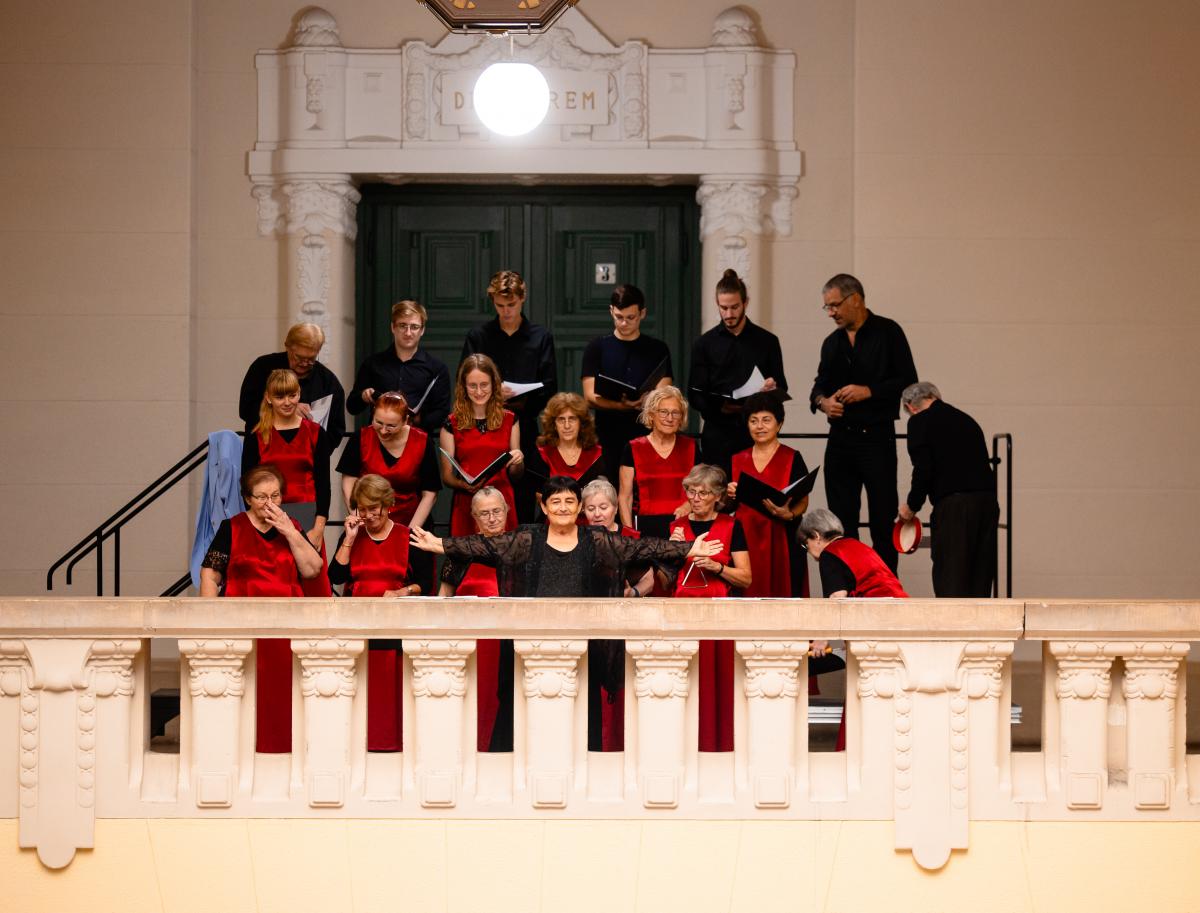
Zsuzsanna Pálóczi, international coordinator of the Department of International Academic Affairs recited the oath of the new students. This was followed by a speech on behalf of the first-year students delivered by Maria Cubic from Serbia, first-year student at the Faculty of Transportation Engineering and Vehicle Engineering and recipient of the Stipendium Hungaricum scholarship. ‘These first few weeks will be the hardest time but you will meet a lot of new friends from all over the world and you will know that you are not alone in this adventure. I wish to congratulate all of you on making a huge step ahead because you need to be very brave to leave your comfort zone and move to another country. We can all be proud of ourselves because this achievement will open a lot of doors in our future career.’
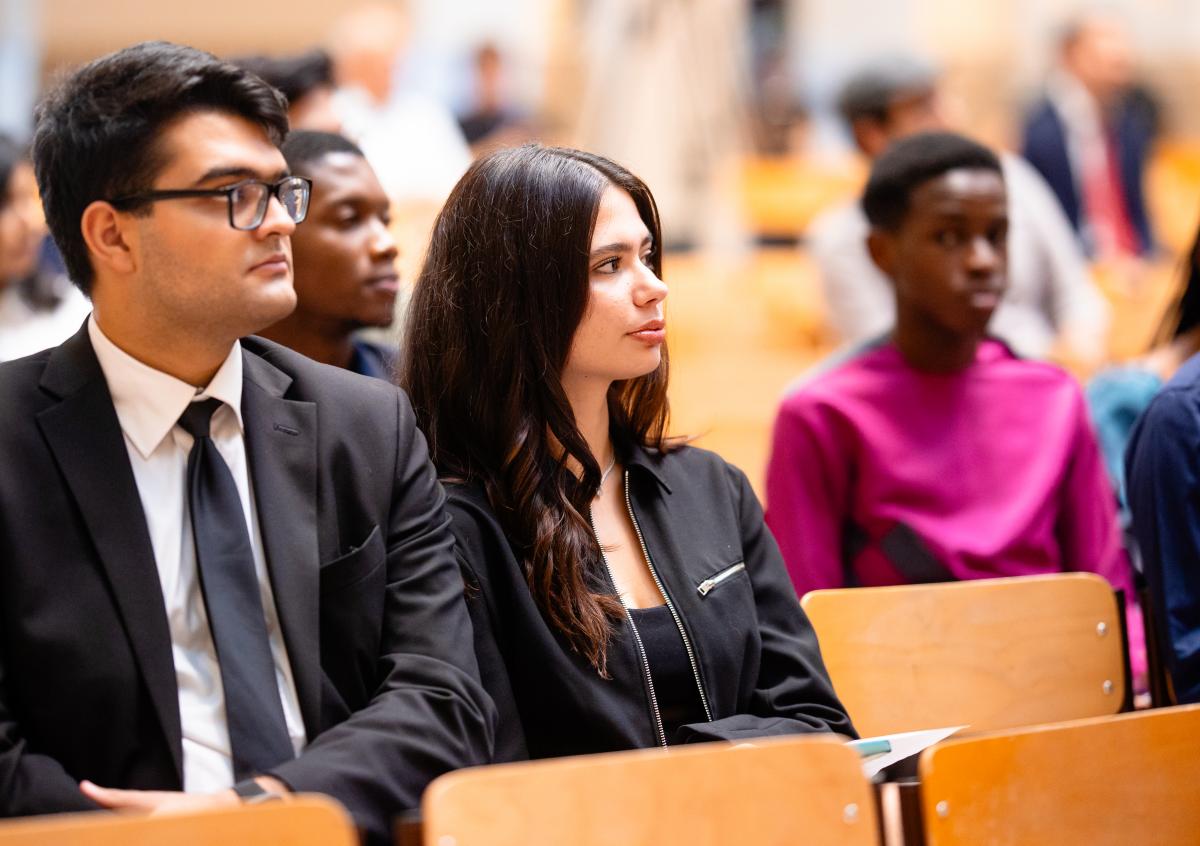

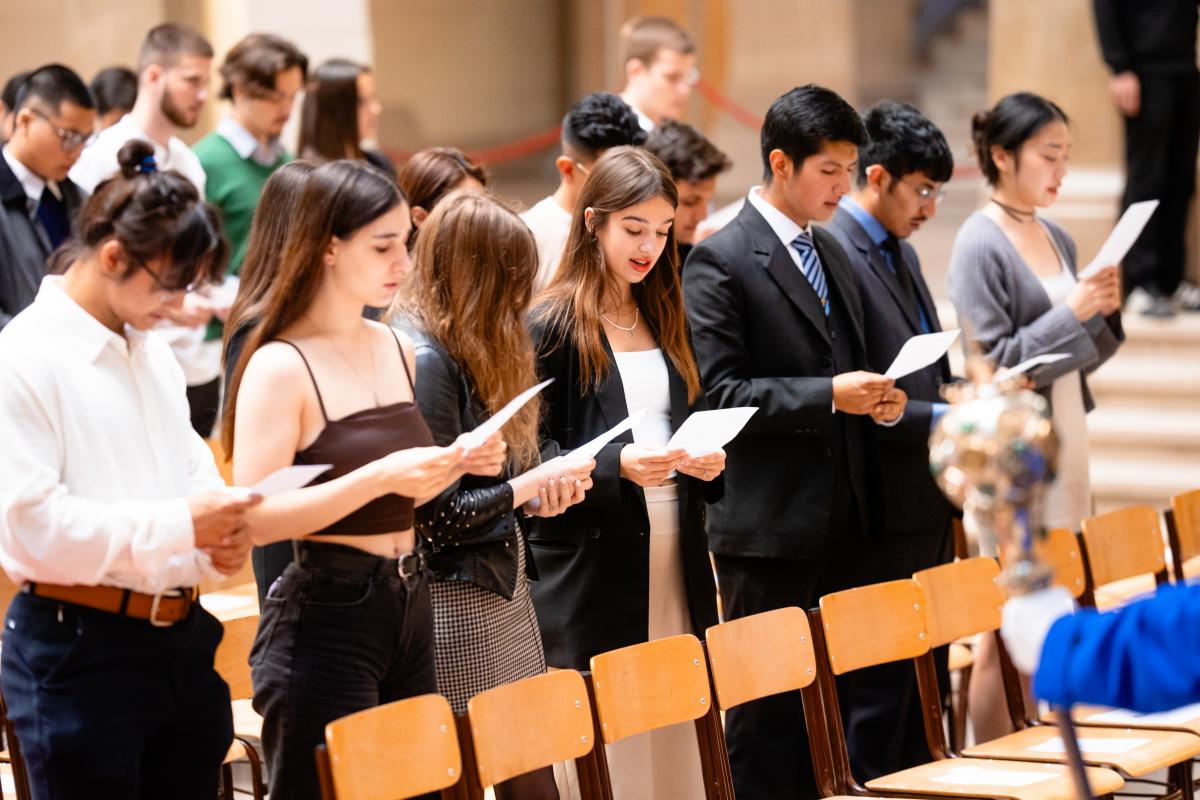
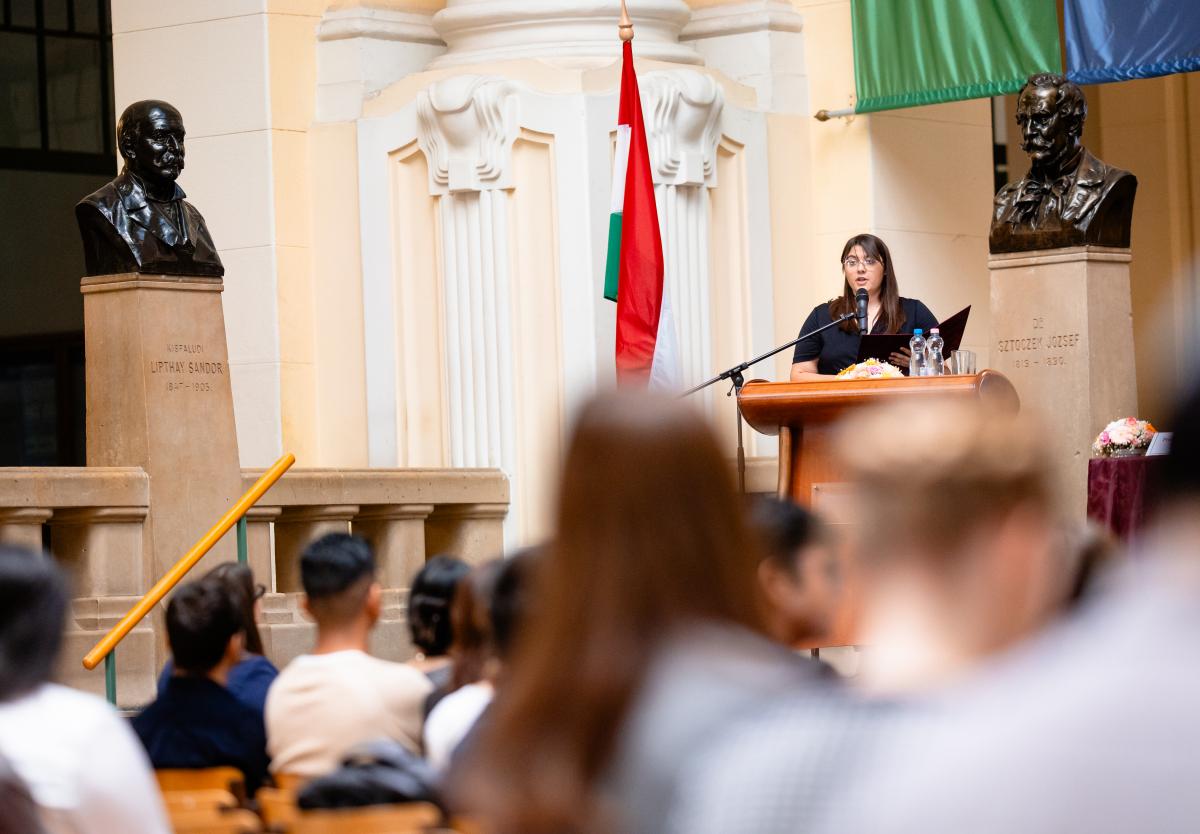
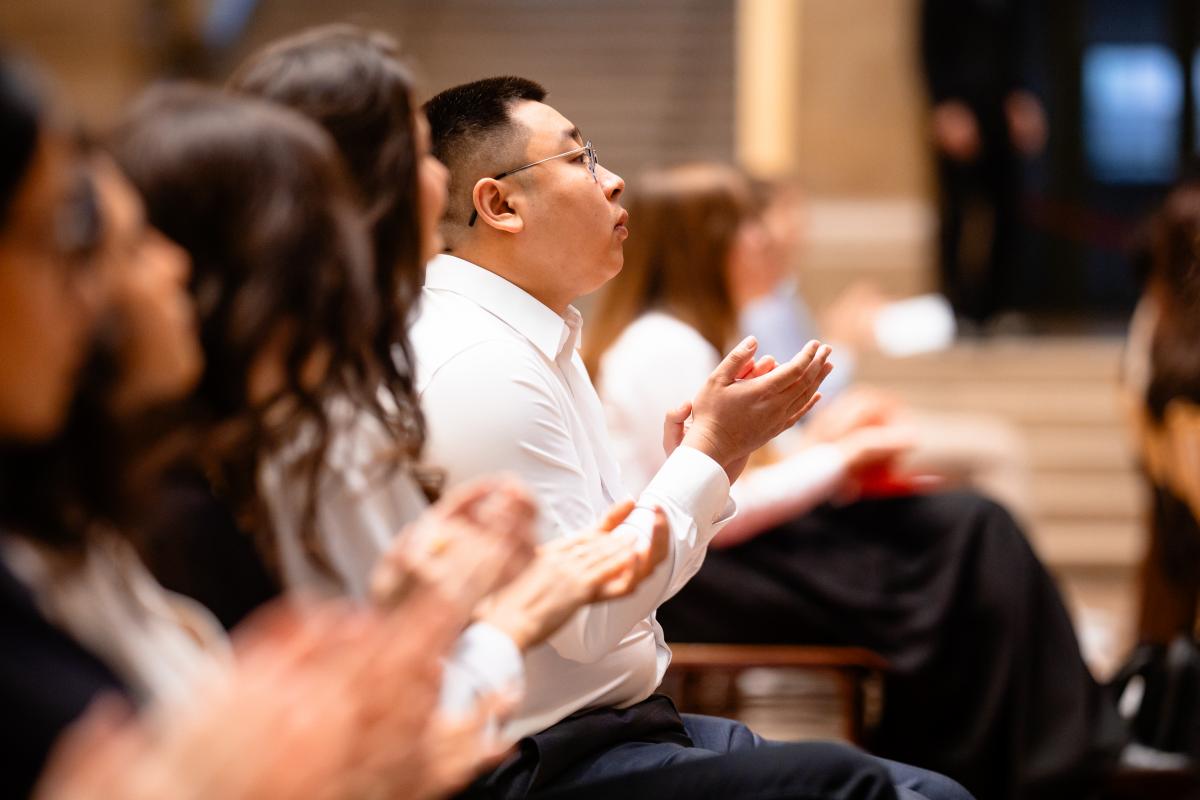
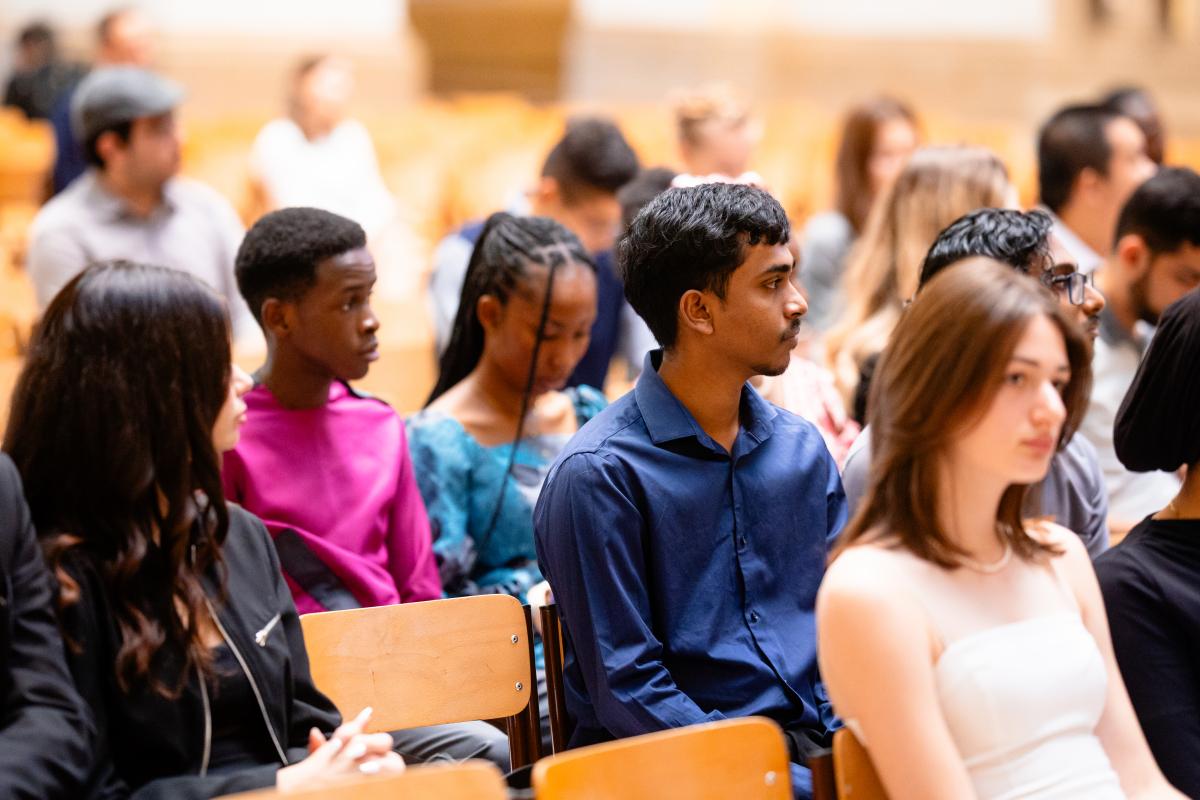
|
Since 1984, our university continuously offers education in English. Each of the 8 faculties of the university at each level offers education to foreign students in a total of 7 undergraduate and 19 graduate, as well as in 15 doctoral programmes. Various scholarships facilitate the studies of international students, out of which the Stipendium Hungaricum scholarship program is the most significant. At present, BME has nearly 2300 international students from 102 countries. |
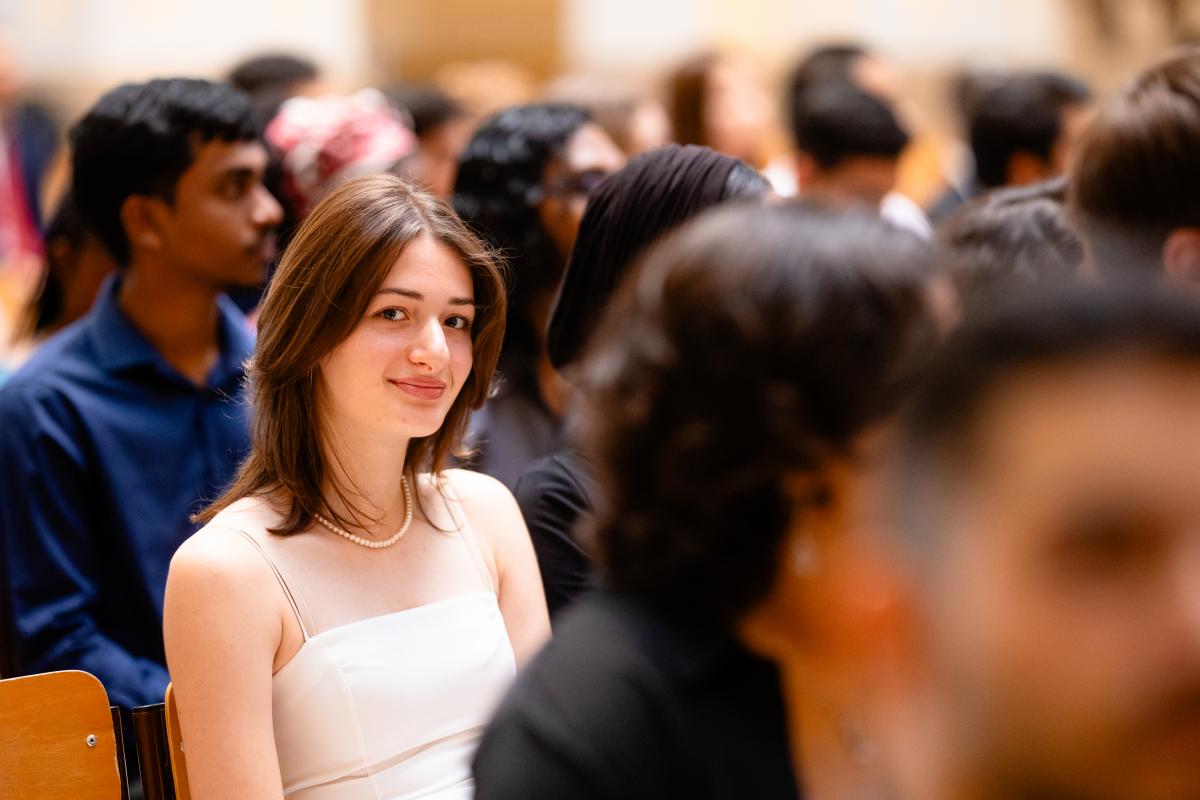
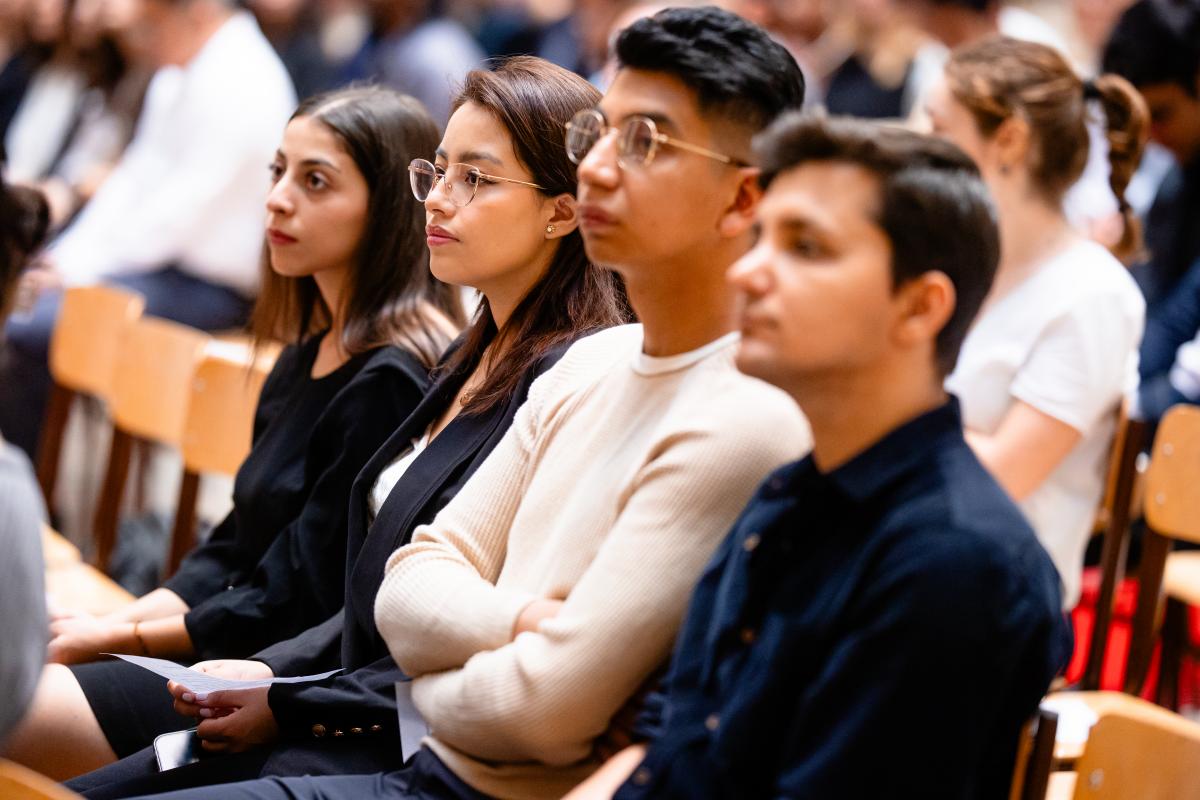
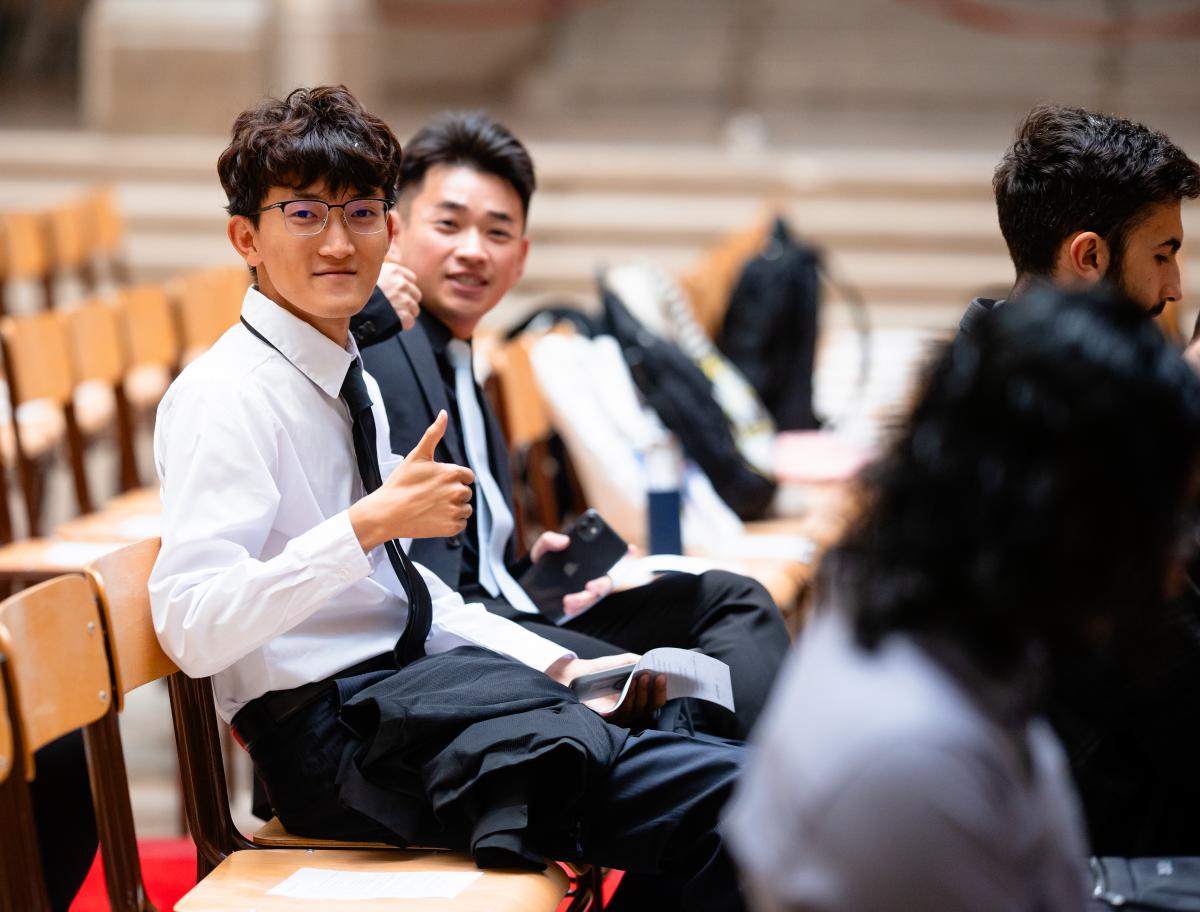
On behalf of the Students’ Union, Levente Nagy welcomed the new students. ‘During your time here, you will be able to learn from extremely helpful professors who are outstanding experts of their respective fields. What’s even better is that on top of its academic and scientific importance, BME offers an array of other opportunities to its students, many of which will be organised by your fellow students.’ He added that the international students can greatly benefit from the university’s well-organised network of international mentors, which, apart from their mandatory and administrative tasks, also throw social events for the students.
‘I would like to thank all of you for participating and also thank BME’s choir for the wonderful performance. I hereby open the 242nd academic year of the Budapest University of Technology and Economics,’ said Emília Csiszár, vice-rector for international affairs in closing the opening ceremony.
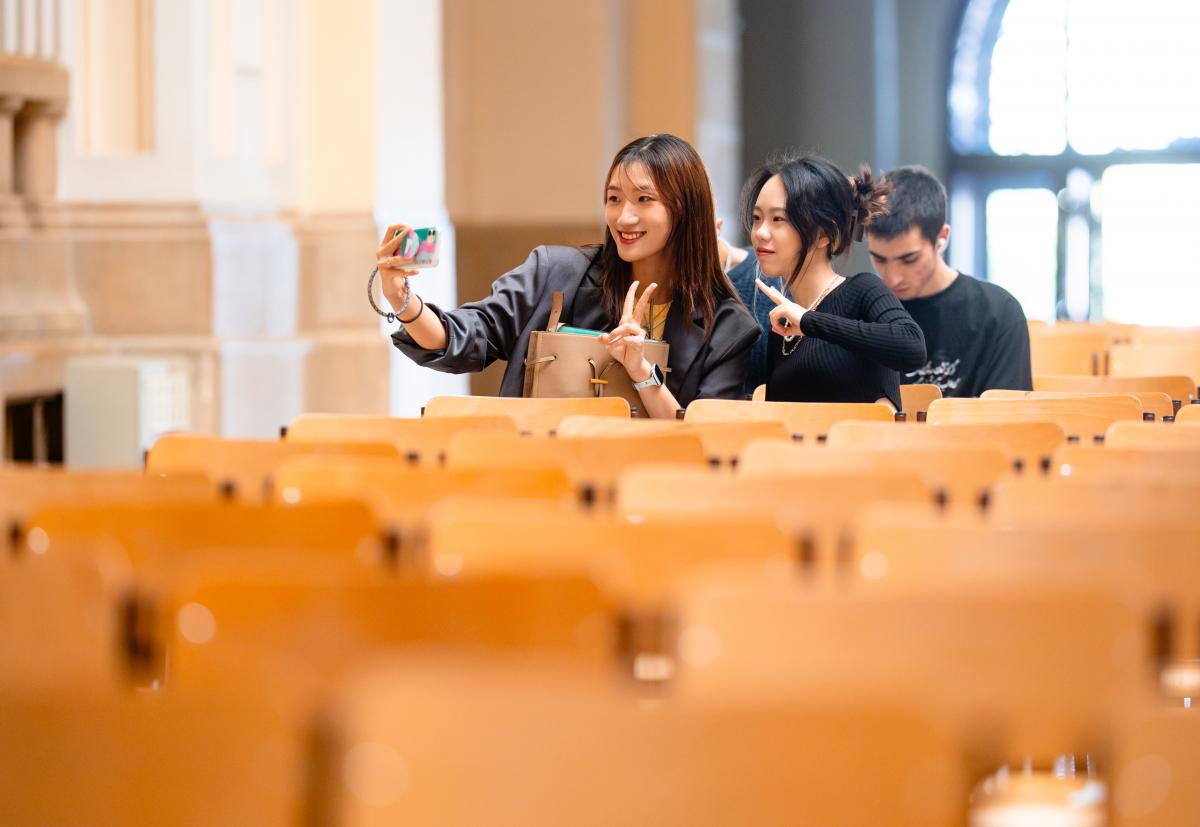

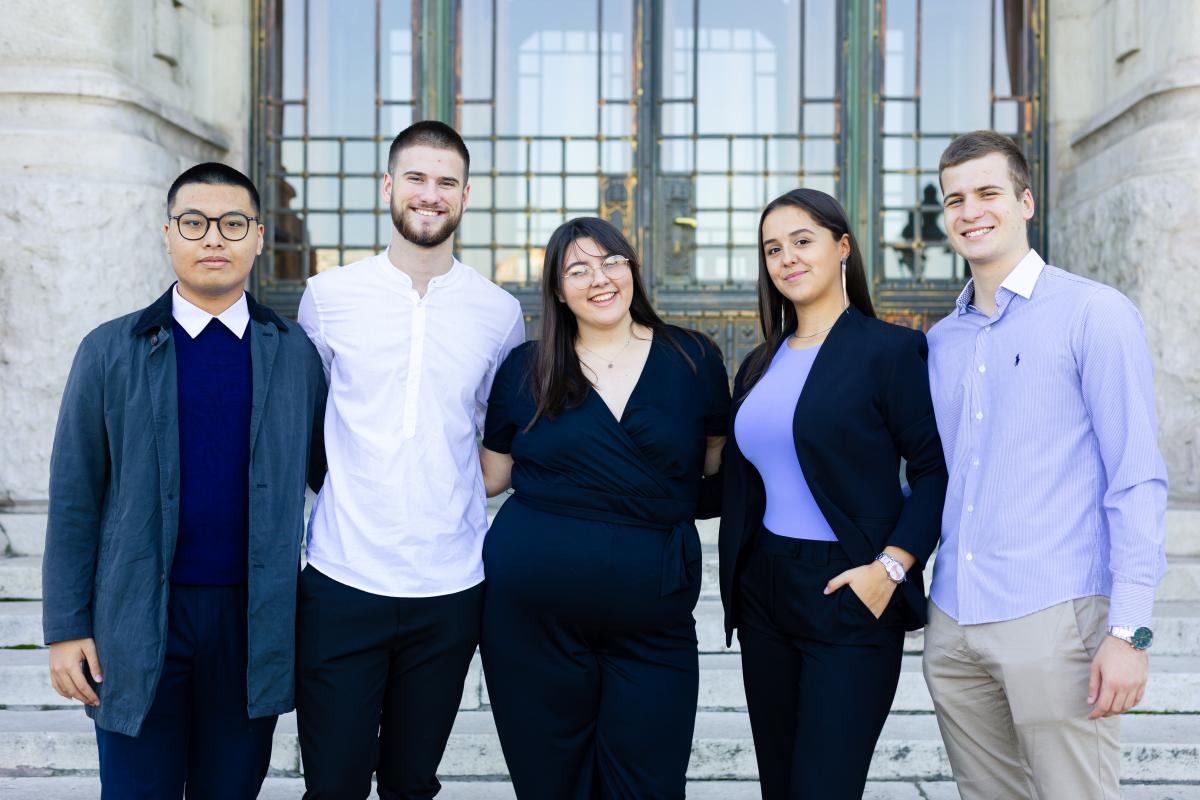
Rector’s Cabinet Communications Directorate
Photo: B. Geberle
